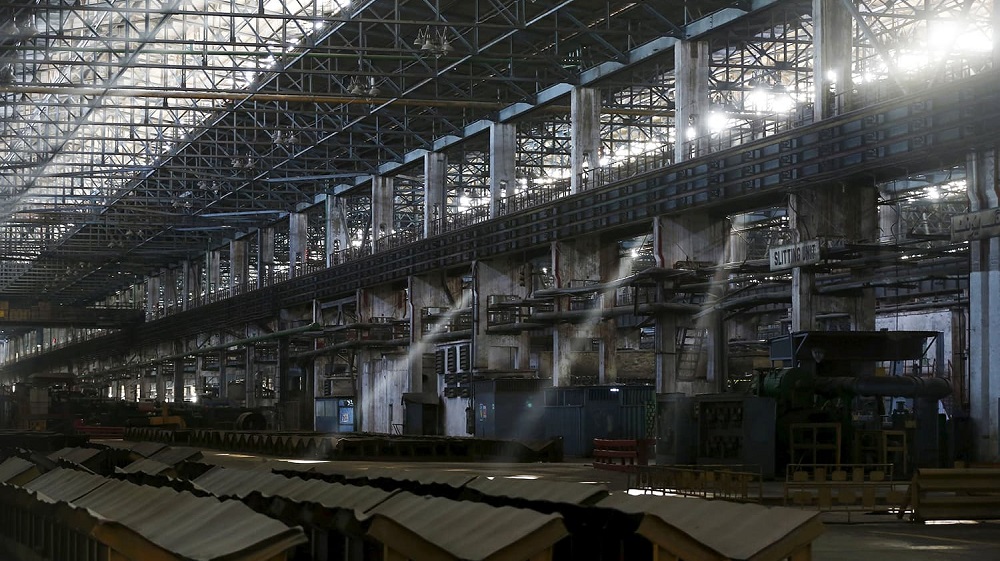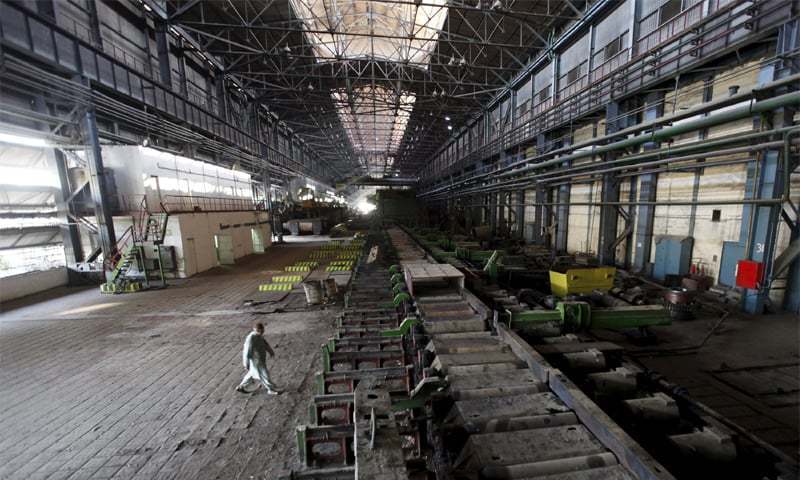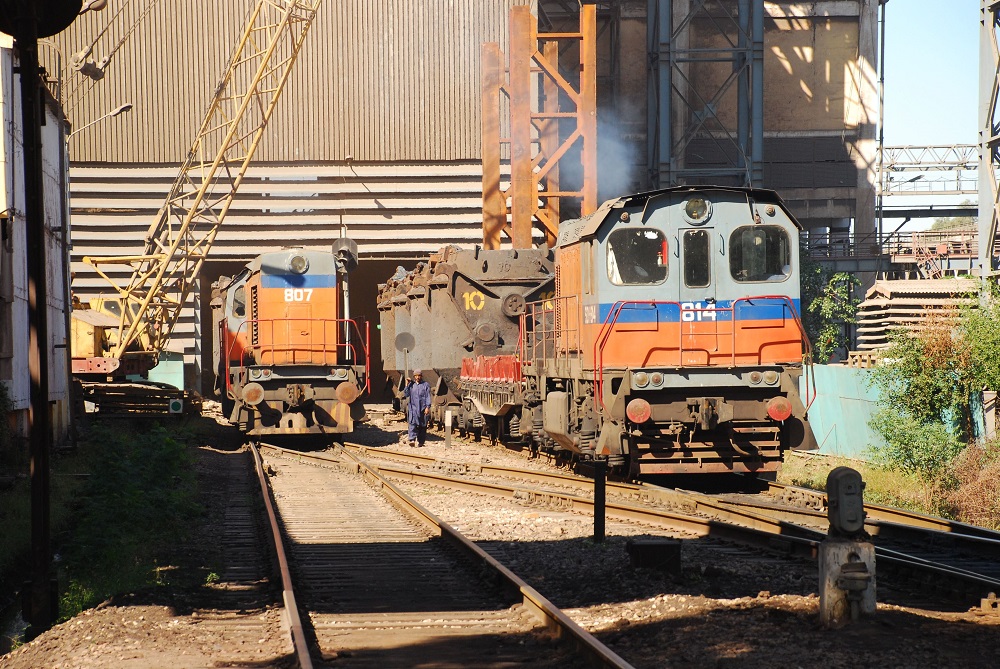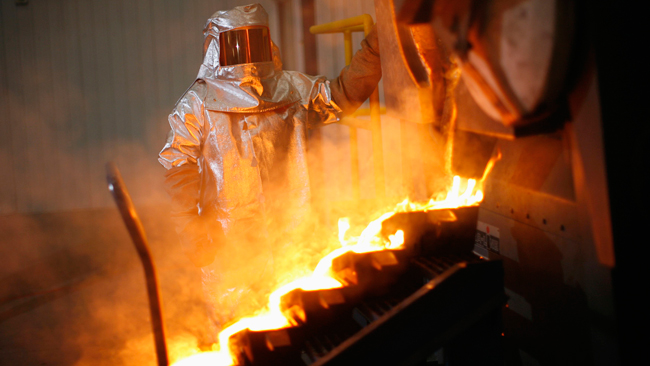Pakistan Steel Mills (PSM) is the largest industrial complex in the country and also the biggest industrial fiasco in a nation of nearly 200 million people.
The Pakistani government of Prime Minister Imran Khan is planning to privatise the company in a bid to stop the continued loss that is putting a heavy burden on the public sector’s shoulders.
Islamabad has also been offering sales to foreign companies such as Chinese, Russian and Iranian factories to be the fresh blood in the PSM’s veins.

A view of the Pakistan Steel Mills. PROPAKISTANI.PK
Back in 2015, a delegation from Iran’s largest steelmaker, Mobarakeh Steel Company, visited the Pakistani complex to see for itself if it can invest there.
At the time, Bahram Sobhani was the company’s managing director. He says he didn’t head the delegation to Pakistan at the time.
“I didn’t go to Pakistan myself. I sent a team of experts from the company,” he noted.
“We were looking to lease the PSM from the government so we would renovate it,” according to Sobhani.
The talks with Islamabad centred on renovating the production line on a lease agreement and not a complete takeover of the Pakistani industrial complex.
Those negotiations went forward to a good point, according to Sobhani, but they failed later because “the Pakistani government didn’t agree at last”. He didn’t explain why Pakistan didn’t give a green light to Mobarakeh's offers.

One of the abandoned PSM production lines. DAWN.COM
But, should Iranian businesses and steel companies invest in such a failed mega-production in a country where security has been the main concern over years?
“I don’t believe that Pakistan is an attractive place for investment,” Sobhani told Iran Chamber Newsroom, pointing to lack of security for businesses and “not much known Pakistani investment laws”.
Islamabad estimates that the steel maker requires a minimum investment of $100 million, according to Adviser to Prime Minister on Commerce, Textile, Industries and Production Abdul Razak Dawood, Pro Pakistan reports.
Sobhani believes that Iranian companies can supply “technical services” to the bankrupt Pakistan Steel Mills.
Technical issues are also another major sticking point for the involvement of Mobarakeh Steel Company in the project.
“I don’t think that Mobarakeh Steel Company can reconstruct the PSM because that company uses tall blast furnaces that are used in Esfahan Steel Company and not in Mobarakeh,” he explained.

One of PSM's blast furnaces. paksteel.com.pk
China has heavily invested in Pakistan’s infrastructure such as construction of China–Pakistan Economic Corridor (CPEC) and the Gwadar Port in Karachi in a bid to export its products through the country.
“Another reason is that China has invested very much in Pakistan and they have very low tariffs between themselves. But, it won’t be beneficial for Iran,” Sobhani argued.
Sobhani, however, left door open for small-scale cooperation with PSM, stressing that “if the Pakistanis want to use Iranian technical services and expertise, we are ready to do so”.
“Downstream production lines like taking lingots to PSM and converting them to rollings,” is one specific cooperation area between the two biggest Iranian and Pakistani steel companies.
"It’s a must for Iran to invest in PSM"
73-year-old Mohammad Hasan Erfanian, one of the co-founders of Mobarakeh Steel Company, the largest steel maker of MENA region, says he didn’t know about the visit of a delegation from the company to Pakistan.
But, he is a fervent supporter of Iran’s investment in the Pakistan’s failed project.
“It’s ultimately necessary that we invest in Pakistan because we own the steel-making process technology,” he said in an interview with Iran Chamber Newsroom.
Erfanian vehemently calls on Iranian authorities to pay close attention to a region of 300 million inhabitants, a potential market for the Iranian steel.
“In the 1980s, we were charged with carrying out a study about what role the Mobarakeh Steel Company could have in the country’s economy. There were three factors that were and are important: raw materials, energy and human resources,” added Erfanian, stressing that “using all of them we could produce up to 55 million tons of steel inside Iran”.
Iran’s crude steel output stood at 24.52 million tons in 2018, according to Worldsteel, up 17.7% YOY, Financial Tribune reports.

During the first five months of 2019, Iranian steel mills produced a total of 10.62 million tons of crude steel, up 5.5% compared with 2018’s corresponding period, the latest report released by the World Steel Association shows.
Iran’s world ranking remains unchanged as the world’s 10th biggest crude steel producer. The country is placed between Brazil (ninth) with 14.02 million tons and Italy (11th) with 10.47 million tons, the new report shows.
Apart from Pakistan, the Iranian entrepreneur urges the government to pay close attention to Afghanistan and Kazakhstan.
“There are two points (countries) around Iran that haven’t been paid attention to. Afghanistan and Kazakhstan,” he told Iran Chamber Newsroom.
“Afghanistan is the world’s unexplored periodic table and Kazakhstan extracts up to 1bn tons of iron,” according to Erfanian.
The businessman, who laid the foundation of the MENA region’s largest steel producer, believes Iranian companies in joint venture with Afghans and Kazakhs can extract minerals and iron, bring it to Iran or export it to world’s heavy figures such as Australia and Brazil through Iran.
“Should we be able to connect Afghanistan and Kazakhstan to sea, we could export iron ore to the world especially Australia and Brazil that are the main countries that set the world’s iron ore prices,” he mentioned.
Australia and Brazil are the world’s biggest iron ore producers.
The main artery is the International North–South Transport Corridor that connects Central Asia to the world seas through Iran.
“The government started the North-South railway to help the Central Asian countries in having a diverse economy. If we had pursued this, Iran wouldn’t have any problems in energy and resources for production of up to 150m tons,” he added.
Iran is fast-tracking the corridor’s completion by finalising 162-km Qazvin-Rasht railways. What’s left is Rasht-Astara railroad that will connect Iran to Azerbaijan, Russia and Europe finally.
“Mobarakeh Steel Company exports to more than 21 countries and it can make use of the regional market of 300 million inhabitants,” Erfanian noted.
The Iranian businessman supports the private sector’s investment in Pakistan Steel Mills (PSM), however he believes that the state-owned holding company Iranian Mines & Mining Industries Development & Renovation (IMIDRO) has a better chance of investment because it will have the government and foreign ministry’s support.
“Should the private sector be interested in PSM, they need the the support from Iran government and foreign ministry to guarantee the investment,” Erfanian mentioned.